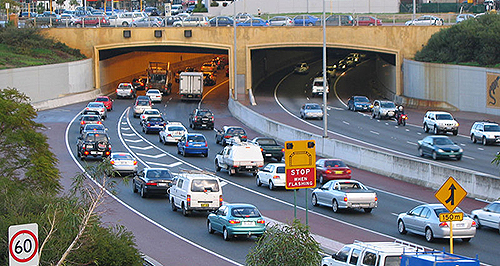EV Council calls for mandatory CO2 standards

THE Australian Electric Vehicle Council (EVC) has called on the federal government to introduce mandatory CO2 emissions standards in the wake of the Australian car industry’s move to a voluntary system.
Starting from this year, the industry-led scheme aims to reduce passenger car and light SUV emissions by an average of four per cent per annum over the next 10 years – or three per cent in the case of heavy SUVs and light-commercial vehicles – by relying on the continuous improvement of traditional powertrains and the ongoing rollout of electrified vehicles.
It does not involve mandatary targets set by government that bring with them penalties for noncompliance, as seen in other markets such as Europe which has been phasing in tougher standards since 2012.
As GoAuto has reported, European regulations stipulate car-makers must this year achieve a fleet average of 95 grams of CO2 per kilometre for passenger cars and SUVs, while Australia’s new voluntary standard sets out a similar target (less than 100g/km) by 2030.
EVC chief executive Behyad Jafari described the industry’s new standard as “a welcome step that paves the way forward” but says the unilateral move “shows the door is open for government to implement mandatory emission standards that encourage the best clean vehicles to be made available to Australian consumers”.
“Today’s announcement proves the industry recognises that CO2 standards benefit consumers,” Mr Jafari said.
“The government should follow the lead and introduce mandatory standards comparable to the US, the EU, and most other markets.
“Until this happens we’ll just have to accept that a huge proportion of the world’s most appealing EVs will be unavailable to Australian consumers.
“Standards need to be designed in a way that encourages auto-makers to bring their EV models to Australia. Australians are early adopters, but they’re missing out on many of the benefits of EVs because our governments have failed to act.
“The relevant stakeholders in Australia are ready to move with the times. But ultimately government needs to play a major role.”
Federal Chamber of Automotive Industries (FCAI) chief executive Tony Weber said the car industry has been in constant dialogue with the federal government and opposition “for a number of years” – including representation on the ministerial forum on vehicle emissions – and that the preference in Canberra was clearly to let industry initiate reform.
“I think it’s fair to say that in Australia, and you see evidence of this from both sides of politics, that right across industries the government’s preference is that where industry responds and (where) they don’t need to regulate, they will not regulate,” he said.
“They’re happy for industries to take the momentum, and make the direction, rather than regulate.
“The best example of that is the electricity sector, where renewables are coming on stream very quickly and the government is happy to let that happen and not have to regulate in that position.”
Mr Jafari said the EVC was focused on “building the ecosystem that will be required for the long-term viability and economic sustainability of low-emissions transport”.
“We recognise that vehicles are an important part, but that the evolution of the automotive industry will require a range of traditional sectors to work together,” he said.
“We stand ready to work co-operatively with government and industry players to help drive the transition we know will make Australia a better place.”